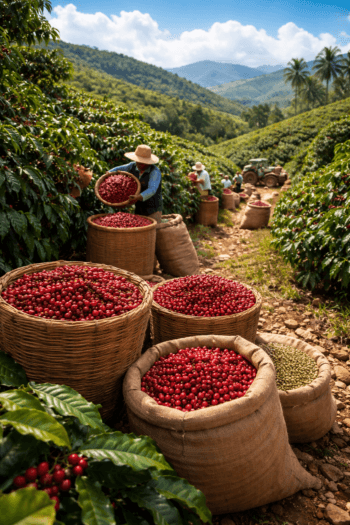Former U.S. President Donald Trump has announced a 90-day suspension of newly imposed “reciprocal” tariffs on all trading countries except China, introducing a 10% baseline tariff rate for them while drastically increasing import tariffs on Chinese goods.
The announcement, made late Tuesday on Trump’s social media platform Truth Social, came just hours after the new tariffs officially went into effect on April 2. In a direct message targeting Beijing, Trump declared that Chinese imports will now face a 125% tariff, effective immediately.
“Based on the lack of respect China has shown to the World’s markets, I am hereby raising the Tariff charged to China by the United States of America to 125%, effective immediately,” Trump wrote.
According to data from the USDA Foreign Agricultural Service, the U.S. imported $22.47 million worth of coffee, coffee husks, and coffee substitutes from China in 2023. The sudden and steep tariff hike is expected to have a significant impact on this niche but growing segment of the coffee trade.
Earlier this month, the U.S. administration introduced new tariff rates targeting coffee and related imports from several major suppliers—including a 46% tariff on Vietnamese coffee, 32% on Indonesian coffee, and 26% on Indian coffee. These announcements triggered a drop in global coffee prices, as market analysts feared reduced demand in the world’s largest coffee-consuming nation.
However, news of the temporary pause on tariffs (excluding China) sparked optimism in financial markets. U.S. stock markets rebounded sharply, recovering some of the losses from the previous week amid concerns over global trade instability.
While investors and the coffee industry breathe a sigh of relief—at least temporarily—the sharp increase in Chinese tariffs signals ongoing trade tensions between the U.S. and China that could continue to disrupt international commodity markets, including coffee.

